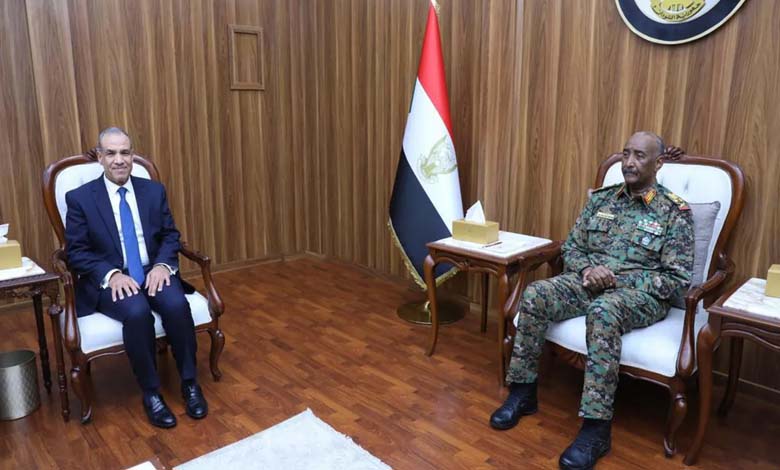Egypt and the Obstruction of the Quartet’s Efforts: Military Bets in Sudan at the Expense of Regional Stability

In a move that underscores the complexity of the Sudanese crisis and the fragmentation of regional and international visions for resolving it, a planned quadrilateral summit in Washington — intended to bring together the United States, Egypt, Saudi Arabia, and the United Arab Emirates — was abruptly canceled. The summit aimed to explore pathways to end the escalating conflict between Sudan’s army and the Rapid Support Forces. Its cancellation followed Egypt’s firm rejection of a U.S. proposal advocating for a civilian-led transitional phase that would exclude all military factions involved in the fighting.
-
Egypt Derails the Quartet Summit on Sudan: Military Support Blocks the Peace Process
-
Trump and Sudan: Can the Still Waters Move Again?
Egypt’s objection, described diplomatically as “resolute,” cannot be understood in isolation from its close ties with the Sudanese military leadership. Cairo views Sudan’s armed forces as a strategic ally and a crucial pillar of its own national security, particularly regarding the Grand Ethiopian Renaissance Dam and regional balance in the Nile basin. From this perspective, any political solution that undermines the military’s role in Sudan is perceived as a direct threat. Yet, while this logic may serve Egypt’s interests, it places the country in direct conflict with the urgent need for a political resolution.
In contrast, Saudi Arabia and the UAE expressed a degree of flexibility toward the American proposal and a willingness to engage in discussions. This signals a shift in Gulf priorities, where concerns over the conflict’s economic and political fallout are beginning to outweigh traditional alliances with military rulers.
-
The UAE and the Sudan Crisis: Ongoing Humanitarian Support and Unceasing Diplomatic Efforts
-
International Conference Condemns Sudanese Army: No Food No Medicine—Only Bullets!
With the collapse of this quadrilateral initiative, hopes for a feasible regional-international roadmap are fading. Egypt’s veto not only blocks a potential political solution, but implicitly normalizes the continuation of war as a legitimate negotiation tactic.
The crisis also exposes the limitations of Western approaches to African conflicts. Despite its global influence, the U.S. failed to unify its traditional partners around a cohesive strategy for Sudan. This dissonance underscores a deeper issue: the West’s ongoing difficulty in managing the aftermath of military coups and in projecting effective political leverage, even within narrowly focused negotiation platforms.
-
The Humanitarian Conference for Sudan: Regional and International Cooperation Led by the UAE, IGAD, and Ethiopia
-
US Sanctions on Sudan’s Army Chief: What Impact?
Egypt’s aim is to preserve military rule in Sudan not for Sudan’s sake, but for its own national calculations — from protecting its position in Nile negotiations to countering the rise of political forces it deems hostile. However, with the situation deteriorating, this short-term gamble risks backfiring if Sudan continues its descent into chaos and fragmentation.
Ultimately, by insisting on backing the military establishment, Egypt may become part of the crisis’s perpetuation rather than its resolution. The result is political deadlock, mounting humanitarian costs, and the paralysis of any meaningful transition. Cairo must rethink its approach and abandon the “stability through force” paradigm — before it finds itself facing the consequences of a collapsing neighbor at its doorstep.
-
“IGAD” Explores Opportunities to Revive Sudanese Negotiations
-
Blinken’s Call: Is Sudan climbing the Swiss Mountains under American pressure?
-
Political and Humanitarian Mobilization: UAE Intensifies Efforts to End Crisis in Sudan
-
The Attempted Assassination of al-Burhan: Between Allegations of Foreign Intervention and Internal Tactics
-
Eritrean Naval Vessels Arrive in Sudan to Support the Army
-
The Muslim Brotherhood in Sudan Seeks to Return to the Scene Through International Conferences… Details












